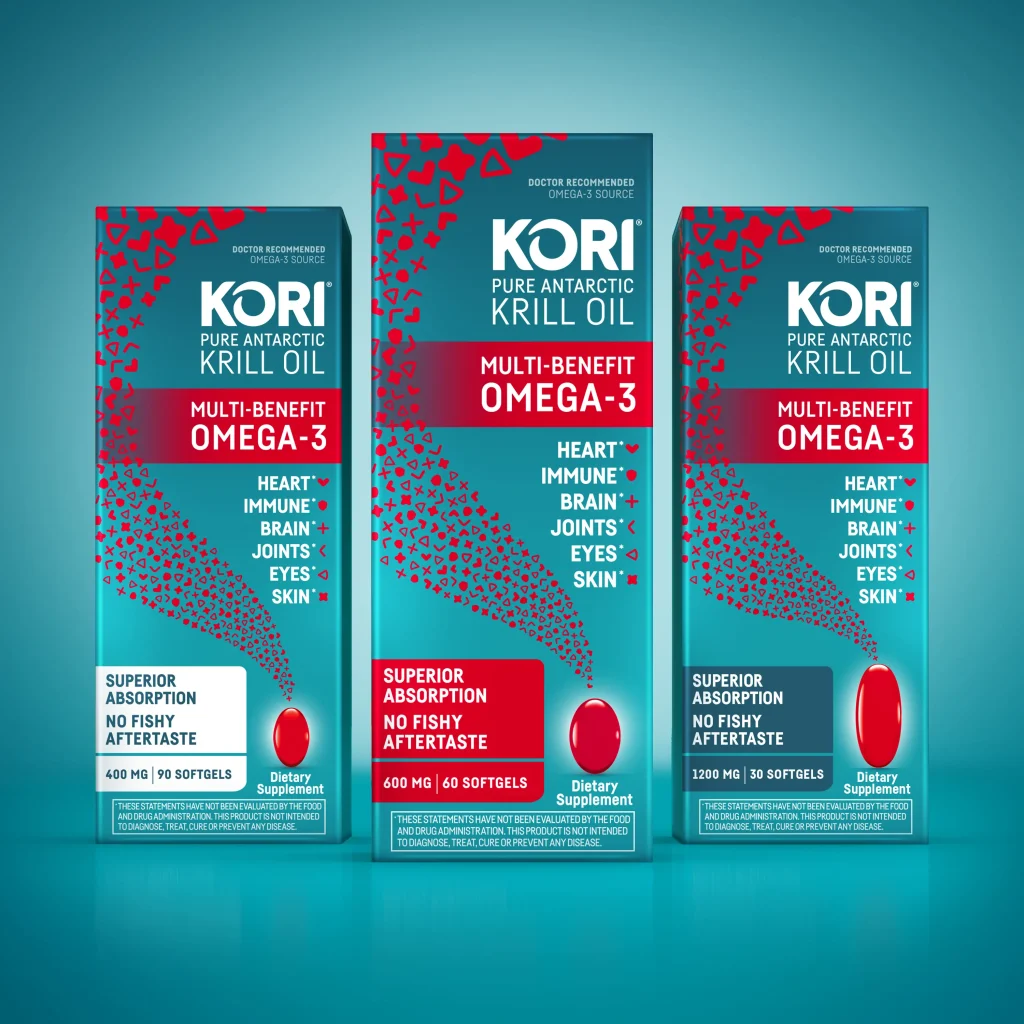Atherosclerosis, often referred to as “hardening of the arteries,” is a covert and potentially life-threatening condition that can silently take root within our cardiovascular system. This insidious process occurs as plaque gradually accumulates in our blood vessels, leading to the narrowing of arteries. As a result, blood flow becomes restricted, significantly increasing the risk of heart disease, stroke, and other cardiovascular complications.
While the foundations of a heart-healthy life include lifestyle modifications like adopting a nourishing diet and engaging in regular physical activity, a powerful complement exists in the form of dietary supplements. In this comprehensive exploration, we will delve into the world of supplements, unveiling the seven most effective options for preventing and managing atherosclerosis. These supplements are not just potential allies in reducing risk; they also actively promote optimal heart health.
Understanding the vital role these supplements can play in your cardiovascular well-being is crucial. Whether you’re seeking to proactively shield yourself from atherosclerosis or looking to manage an existing condition, this article will serve as your informative guide to making informed decisions about supplementation.
You May Also Like:
Support Your Heart Health: Comparing 2 Top Supplements
Satisfy Your Sweet Tooth and Stay Fit: Healthy Donuts from Drumroll Snacks Lead the Way
The Best Supplements for Atherosclerosis: Reduce Your Risk With These 7 Powerful Supplement Ingredients is an original (OptimalHealthNews) article.
Best supplements for atherosclerosis:
Background and symptoms
Atherosclerosis is a progressive and potentially life-threatening cardiovascular condition that occurs when plaque accumulates within the arteries. This condition gradually narrows and stiffens these vital blood vessels, impeding the smooth flow of oxygen-rich blood to various parts of the body. Atherosclerosis typically develops over many years, and during its early stages, individuals may not experience noticeable symptoms. However, as the condition progresses, it can lead to various health issues.
Common symptoms of atherosclerosis often manifest when the narrowing of arteries becomes significant enough to restrict blood flow to essential organs and tissues. Chest pain or discomfort, known as angina, is a prevalent symptom that often occurs during physical activity or when there is an increased demand for oxygen by the heart. Individuals with atherosclerosis may also experience shortness of breath, especially during exertion, as their heart struggles to pump an adequate supply of blood.
As atherosclerosis advances, it can affect different parts of the body, leading to a range of symptoms. Reduced blood flow in the legs, for instance, may cause intermittent claudication, characterized by muscle pain or cramping while walking or engaging in physical activity. Atherosclerosis in the carotid arteries supplying the brain may result in transient ischemic attacks (TIAs) or strokes, which can lead to symptoms like sudden weakness, numbness, difficulty speaking, or temporary vision loss.
In some cases, atherosclerosis can remain asymptomatic until it reaches an advanced stage, at which point it may result in severe complications like heart attacks or strokes. Therefore, it is crucial to be aware of the risk factors associated with atherosclerosis, including high blood pressure, high cholesterol levels, smoking, diabetes, and obesity. Regular health check-ups are essential to detect the condition early and manage it effectively.

Best supplements for atherosclerosis:
Prognosis
The prognosis of atherosclerosis can vary significantly from person to person and depends on several factors. These include the extent and severity of the disease, the effectiveness of treatment and lifestyle modifications, and the presence of other underlying health conditions. Atherosclerosis is a chronic and progressive condition, meaning it tends to worsen over time if left unmanaged.
For individuals with mild atherosclerosis who make necessary lifestyle changes, such as adopting a heart-healthy diet, engaging in regular physical activity, quitting smoking, and effectively managing risk factors like high blood pressure and cholesterol levels, the prognosis can be relatively favorable. These individuals may be able to slow down or even halt the progression of the disease, reducing the risk of experiencing cardiovascular events like heart attacks or strokes.
However, for those with more advanced atherosclerosis or those who do not effectively manage their risk factors, the prognosis may be less optimistic. Advanced atherosclerosis may lead to significant narrowing or blockage of crucial arteries, increasing the risk of severe cardiovascular complications. In such cases, individuals may require more aggressive treatments, such as medications or interventions like angioplasty and stent placement or coronary artery bypass surgery.
Overall, early detection, lifestyle modifications, and adherence to medical recommendations are pivotal in improving the prognosis for individuals with atherosclerosis. Regular medical check-ups, monitoring of risk factors, and compliance with prescribed medications and interventions can help mitigate the progression of the disease, enhancing the chances of maintaining a better quality of life and cardiovascular health.
Best supplements for atherosclerosis:
Treatment
The treatment of atherosclerosis requires a multifaceted approach aimed at reducing complications and effectively managing this progressive cardiovascular condition. The cornerstone of atherosclerosis management lies in comprehensive lifestyle modifications that are integral to improving overall cardiovascular health. These adjustments encompass adopting a heart-healthy diet, engaging in regular physical activity, quitting smoking, and maintaining a healthy weight. These lifestyle changes collectively work to lower cholesterol levels, control blood pressure, and reduce the underlying inflammation that fuels atherosclerosis.
In addition to lifestyle modifications, medical management plays a pivotal role in addressing atherosclerosis. Healthcare professionals may prescribe various medications tailored to an individual’s specific risk factors and symptoms. These medications can include statins to lower cholesterol levels, antiplatelet drugs to reduce the risk of blood clots, blood pressure medications to maintain healthy blood pressure, and drugs to manage blood sugar levels in individuals with diabetes. The precise combination and dosage of medications are determined through careful assessment and consultation with healthcare providers.
For individuals with advanced atherosclerosis or those at high risk of complications, medical interventions may be necessary. Procedures such as angioplasty, stent placement, or coronary artery bypass surgery may be recommended to address severe blockages and restore optimal blood flow. The choice of intervention depends on factors such as the individual’s overall health, the extent of atherosclerosis, and the presence of specific risk factors.
Collaboration with healthcare professionals is essential in the creation of a personalized treatment plan tailored to each individual’s unique needs and circumstances. Regular check-ups and ongoing monitoring are crucial components of atherosclerosis management, enabling healthcare providers to assess the effectiveness of treatment and make necessary adjustments to maintain heart health.
In conclusion, the treatment of atherosclerosis involves a holistic approach that combines lifestyle modifications, medication management, and, in some cases, medical interventions. The goal is to reduce the risk of cardiovascular events, such as heart attacks and strokes, through careful and personalized management under the guidance of healthcare professionals. Regular monitoring ensures that treatment strategies remain effective, ultimately contributing to improved heart health and a better quality of life.

Best supplements for atherosclerosis:
7 supplements to help reduce risks
Atherosclerosis, the gradual buildup of plaque in arteries, poses a significant risk to cardiovascular health. Alongside a heart-healthy lifestyle, several supplements can play a role in reducing this risk.
- Coenzyme Q10 (CoQ10): CoQ10 is a potent antioxidant and a crucial component in energy production within cells. It can also improve blood vessel function and reduce oxidative stress, contributing to overall cardiovascular health.
- Garlic: Beyond its culinary uses, garlic contains allicin, which can lower blood pressure, reduce cholesterol levels, and prevent arterial plaque formation. Its anti-inflammatory properties are particularly beneficial in combating atherosclerosis.
- Vitamin D: Often called the “sunshine vitamin,” vitamin D is linked to cardiovascular health. It helps regulate blood pressure, reduce inflammation, and improve endothelial function, making it a potential ally against atherosclerosis.
- Magnesium: This essential mineral plays a role in muscle and nerve function, blood glucose control, and blood pressure regulation. Magnesium can relax arteries, improve blood flow, and reduce the risk of atherosclerosis-related complications, particularly hypertension.
- Vitamin K2: A lesser-known member of the vitamin K family, K2 is involved in calcium metabolism and is essential for maintaining healthy arteries. It directs calcium away from arteries and into bones, reducing the risk of plaque formation and potentially slowing the progression of atherosclerosis.
- L-Arginine: An amino acid, L-arginine aids in the production of nitric oxide, a molecule that relaxes blood vessels, improves blood flow, and reduces blood pressure. It can be beneficial for those with atherosclerosis by enhancing overall cardiovascular function.
- Krill Oil: Derived from tiny crustaceans, krill oil is rich in omega-3 fatty acids, notably EPA and DHA. It offers a convenient and effective source of these essential nutrients, and my support reduced inflammation, lower triglycerides, and improved heart health. Krill oil can be found in supplements such as Kori Krill Oil’s Multi-Benefit Omega-3 Softgels.
While these supplements can be beneficial in reducing the risk of atherosclerosis, it’s crucial to remember that they should complement, not replace, a balanced diet and a heart-healthy lifestyle. Moreover, consulting with a healthcare professional before introducing new supplements, especially if you have underlying health conditions or are on medication, is essential to ensure safety and efficacy. Incorporating these supplements alongside a heart-conscious lifestyle can help proactively mitigate the risk of atherosclerosis and support optimal cardiovascular health.

Best supplements for atherosclerosis:
Kori Krill Oil
When it comes to choosing the right supplement to help reduce the risk of atherosclerosis and promote heart health, Kori Krill Oil Multi-Benefit Omega-3 Softgels stands out as a superior choice. These softgels offer a convenient and effective source of essential omega-3 fatty acids, particularly EPA and DHA, which have been extensively studied for their cardiovascular benefits.
What sets Kori Krill Oil apart is the exceptional quality and purity of its omega-3 supplements. Derived from tiny crustaceans known as krill, Kori Krill Oil boasts a natural and sustainable source of omega-3s. Moreover, Kori Krill Oil stands out as the exclusive vertically integrated brand in the market. Owned by the premier supplier of krill oil, Kori Krill Oil distinguishes itself by directly delivering its product to consumers. The company effectively manages the entire process—from catching to processing—ensuring a direct and premium offering to its customers.
Furthermore, the unique phospholipid structure of omega-3s in krill oil enhances their absorption and bioavailability in the body, allowing for more efficient utilization and greater cardiovascular support. Kori Krill Oil takes pride in its commitment to delivering high-quality omega-3 supplements, setting a gold standard in purity, potency, and sustainability.
For those seeking to reduce the risk of atherosclerosis, Kori Krill Oil Multi-Benefit Omega-3 Softgels offer a reliable and scientifically backed solution. Incorporating these softgels into your daily routine may help combat inflammation, lower triglyceride levels, and improve overall heart health. With Kori Krill Oil, you not only receive the cardiovascular benefits of omega-3s but also the peace of mind that comes from choosing a reputable and environmentally responsible source. When it comes to safeguarding your heart, Kori Krill Oil Multi-Benefit Omega-3 Softgels are a premium choice for those who prioritize quality and efficacy in their quest for atherosclerosis prevention and optimal cardiovascular well-being.

Best supplements for atherosclerosis:
Final thoughts
In conclusion, atherosclerosis is a significant health concern that warrants our attention due to its potential to lead to life-threatening cardiovascular complications. While the cornerstones of prevention and management lie in lifestyle adjustments such as adopting a nourishing diet, engaging in regular exercise, and abstaining from smoking, there is an array of supplements that can serve as valuable allies in this battle.
Supplements such as omega-3 fatty acids, CoQ10, garlic, vitamin D, magnesium, vitamin K2, and L-arginine stand out as potent contenders in the quest for atherosclerosis prevention and overall heart health enhancement. These supplements, each with its unique attributes, have demonstrated the capacity to help diminish the risk of atherosclerosis and promote cardiovascular well-being.
However, it is paramount to remember that supplements should never replace the foundation of a balanced diet and a healthy lifestyle. Instead, they should complement these efforts, offering targeted support where needed. To make informed decisions and ensure safety, consulting with a healthcare professional before introducing new supplements into your routine is crucial, especially if you have underlying health conditions or are currently on medication.
By incorporating these supplements judiciously, alongside the cultivation of a heart-healthy lifestyle, you can take proactive steps toward lowering your risk of atherosclerosis and nurturing a life marked by better heart health and enhanced overall well-being. It is a journey that empowers you to enjoy a happier and healthier life, one heartbeat at a time.

Further Reading:
American Heart Association. Atherosclerosis A Chronic Inflammatory Disease With an Autoimmune Component
Cell. Atherosclerosis: Recent developments
HHS Public Access. Atherosclerosis
International Journal of Preventative Medicine. Atherosclerosis: Process, Indicators, Risk Factors and New Hopes
Molecular Nutrition and Food Research. Effect of Dietary Components from Antarctic Krill on Atherosclerosis in apoE-Deficient Mice
Important Note: The information contained in this article is for general informational purposes only, and should not be construed as health or medical advice, nor is it intended to diagnose, prevent, treat, or cure any disease or health condition. Before embarking on any diet, fitness regimen, or program of nutritional supplementation, it is advisable to consult your healthcare professional in order to determine its safety and probable efficacy in terms of your individual state of health.
Regarding Nutritional Supplements Or Other Non-Prescription Health Products: If any nutritional supplements or other non-prescription health products are mentioned in the foregoing article, any claims or statements made about them have not been evaluated by the U.S. Food and Drug Administration, and such nutritional supplements or other health products are not intended to diagnose, treat, cure, or prevent any disease.
